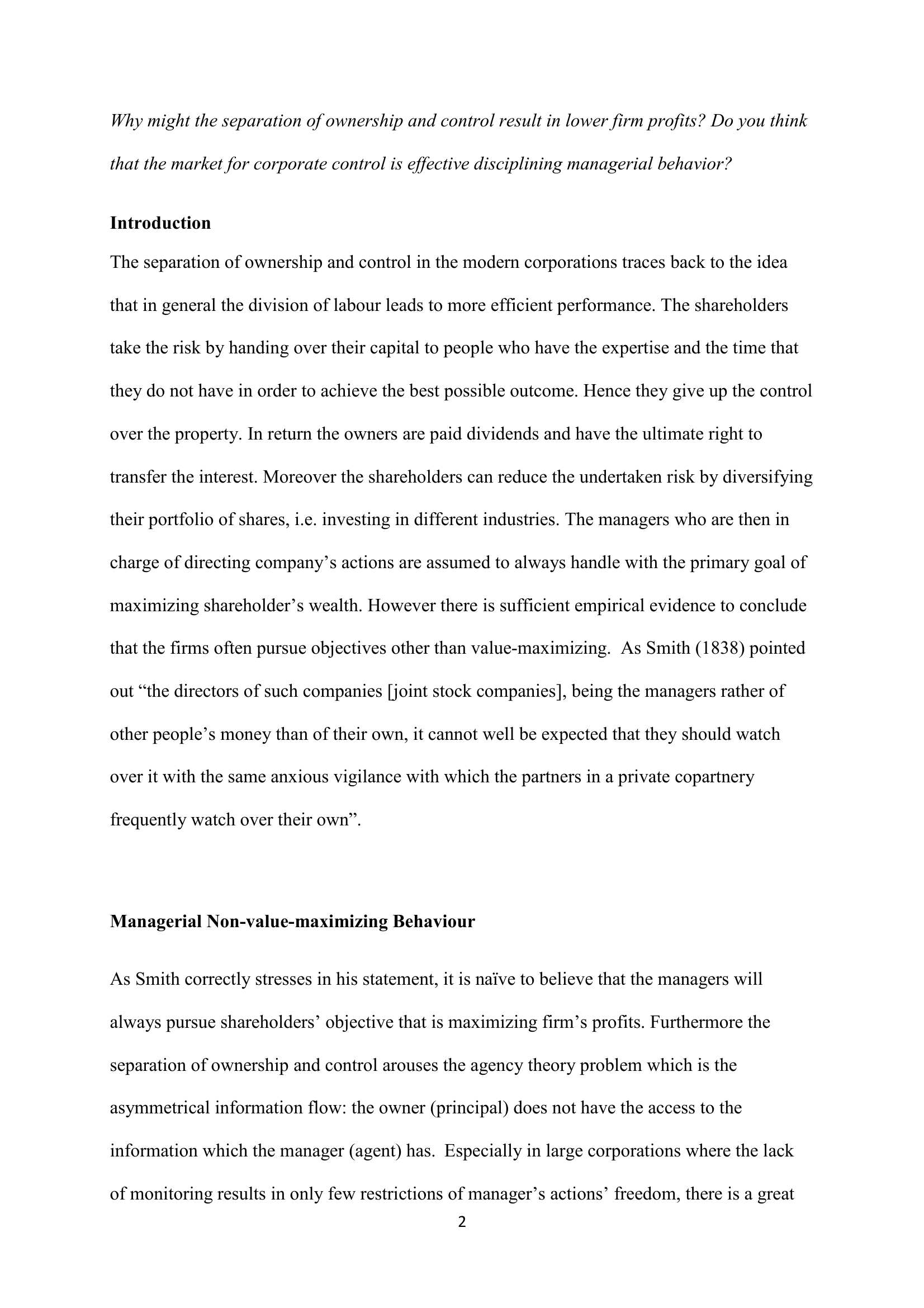Why might the separation of ownership and control result in lower firm profits? Do you think that the market for corporate control is effective disciplining managerial behavior?
Publié le 08/02/2012

Extrait du document
«
2
Why might the separation of ownership and control result in lower firm profits? Do you think
that the market for corporate control is effective disciplining managerial behavior?
Introduction
The separation of ownership and control in the modern corporations traces back to the idea
that in general the division of labour leads to more efficient performance.
The shareholders
take the risk by handing over their capital to people who have the expertise and the time that
they do not have in order to achieve the best possible outcome.
Hence they give up the control
over the property.
In return the owners are paid dividends and have the ultimate right to
transfer the interest.
Moreover the shareholders can reduce the undertaken risk by diversifying
their portfolio of shares, i.e.
investing in different industries.
The managers who are then in
charge of directing company’s actions are assumed to always handle with the primary goal of
maximizing shareholder’s wealth.
However there is sufficient empirical evidence to conclude
that the firms often pursue objectives other than value-maximizing.
As Smith (1838) pointed
out “the directors of such companies [joint stock companies], being the managers rather of
other people’s money than of their own, it cannot well be expected that they should watch
over it with the same anxious vigilance with which the partners in a private copartnery
frequently watch over their own”.
Managerial Non-value-maximizing Behaviour
As Smith correctly stresses in his statement, it is naïve to believe that the managers will
always pursue shareholders’ objective that is maximizing firm’s profits.
Furthermore the
separation of ownership and control arouses the agency theory problem which is the
asymmetrical information flow: the owner (principal) does not have the access to the
information which the manager (agent) has. Especially in large corporations where the lack
of monitoring results in only few restrictions of manager’s actions’ freedom, there is a great.
»
↓↓↓ APERÇU DU DOCUMENT ↓↓↓
Liens utiles
- WHY I'M NOT WHERE YOU ARE 5/21/63 Your mother and I never talk about the past, that's a rule.
- Does the "access" or "service" model that has replaced the "ownership" model in the business practice of companies such as Kindle/Amazon take fairly into account the interests and/or rights of the consumers?
- Arachnids You may think that spiders and ticks are insects, but they are not.
- Debating Sports Records Mark Purdy, sports columnist for the San Jose Mercury News in California, compiles a list of sports records that he believes will never be broken and a separate list of records that he thinks are soon to be eclipsed.
- Fornax (Furnace) Roman A goddess of baking, who oversaw the ovens used for baking so that they did not become too hot and burn the roasting corn or bread.

































